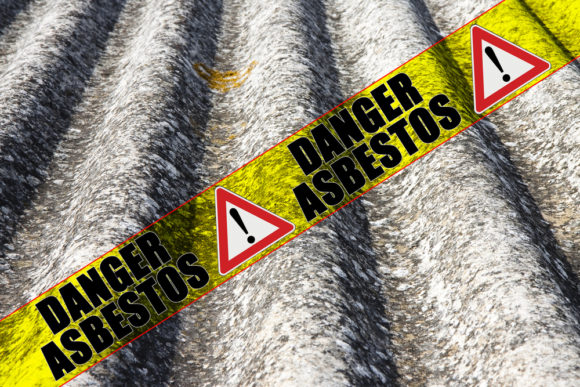The Massachusetts Supreme Judicial Court has ruled that a statute of repose barring many construction-related personal injury claims after a time limit of six years also applies to claims involving diseases with extended latency periods, such as asbestos-related illnesses.
The ruling follows the death of Wayne Oliver in 2016 due to mesothelioma after he was exposed to asbestos during construction of two nuclear power plants in the 1970s.
Previously, defendant General Electric Company (GE) had designed, manufactured and sold steam turbine generators for installation at each of the plants and supervised the installations. GE’s installation specifications called for the use of asbestos-containing insulation materials, and Oliver – who worked as a pipe inspector for a non-party – was present while the insulation was cut, mixed and applied to piping systems and equipment in the turbine halls of both plants, exposing him to the asbestos particles, according to the Massachusetts Supreme Judicial Court document.
Oliver came into contact with the insulation between 1971 and 1978, received his malignant mesothelioma diagnosis in April 2015 and brought the underlying action in the Superior Court in August 2015, the court document stated.
He alleged, among other things, that GE had negligently exposed him to asbestos during construction of the two power plants and caused him to contract mesothelioma.
The case was later removed to the Federal District Court and, when Oliver passed away in July 2016, that court allowed the plaintiffs to submit an amended complaint and continue the litigation as co-executors of Oliver’s estate.
Court Proceedings
After the case was removed to the Federal District Court, GE moved for summary judgment. It contended that the plaintiffs’ claims were barred by a Massachusetts statute of repose, which sets a six-year time limit for tort actions resulting from deficiency or neglect in the design, planning, construction or administration of an improvement to real property, the court document stated.
The plaintiffs argued that the statute was not intended to apply to cases involving diseases with extended latency periods, alleging that this would eliminate claims before they even arose.
The judge in the Federal District Court found that GE’s turbine generators, including their insulation materials, were improvements to real property under the statute. However, she denied GE’s motion regarding Oliver’s claims, stating it was not clear the statute was designed to bar claims involving diseases known to have a latency period of at least 20 years.
Additionally, she found that because GE had control of the site and conducted regular on-site maintenance and inspections for at least two decades after construction was complete, it does not fall under the category of defendants typically protected by the statute.
GE then moved for the judge either to reconsider her decision or certify the ruling for an interlocutory appeal to the United States Court of Appeals. The plaintiffs opposed interlocutory appeal but, in the event of an appeal, moved for certification to the Massachusetts Supreme Judicial Court.
The Federal District Court judge denied GE’s motion and certified to the Massachusetts Supreme Judicial Court to answer the question of whether the Massachusetts statute of repose could be applied in this case.
SJC Ruling
In its decision, the Massachusetts Supreme Judicial Court concluded that by establishing the six-year time limit, the Massachusetts Legislature “struck what it considered to be a reasonable balance between the public’s right to a remedy and the need to place an outer limit on the tort liability of those involved in construction,” the court document stated.
Although the plaintiffs contended the statute of repose does not protect a defendant that was in control of the improvement to real property at the time of the incident and does not apply to claims involving diseases with extended latency periods, the SJC disagreed, stating the language of the statute is “unequivocal.”
As a result, the SJC concluded the state’s statute of repose eliminates all tort claims as a result of any neglect in the design, planning, construction or administration of an improvement to real property after the established time period has run out, even if the claims involve a disease with an extended latency period and the defendant had control of the instruments causing injury.
“In so doing, we recognize that, considering the latency period for asbestos-related illnesses, this will have the regrettable effect of barring all or nearly all tort claims arising from negligence in the use or handling of asbestos in construction-related suits,” the court added in its decision. “Nonetheless, the appropriate recourse is in the Legislature, not this court.”
Was this article valuable?
Here are more articles you may enjoy.



 Viewpoint: How P/C Carriers Can Win the Next Decade With Tech + Talent
Viewpoint: How P/C Carriers Can Win the Next Decade With Tech + Talent  AIG’s Zaffino: Outcomes From AI Use Went From ‘Aspirational’ to ‘Beyond Expectations’
AIG’s Zaffino: Outcomes From AI Use Went From ‘Aspirational’ to ‘Beyond Expectations’  World’s Growing Civil Unrest Has an Insurance Sting
World’s Growing Civil Unrest Has an Insurance Sting  Insurance Broker Stocks Sink as AI App Sparks Disruption Fears
Insurance Broker Stocks Sink as AI App Sparks Disruption Fears 


